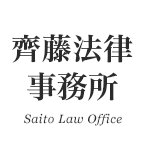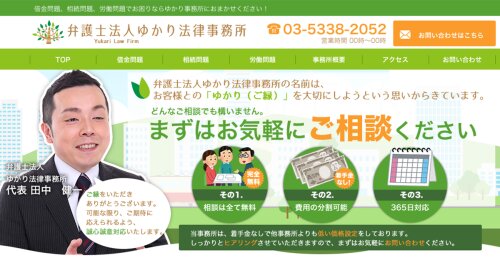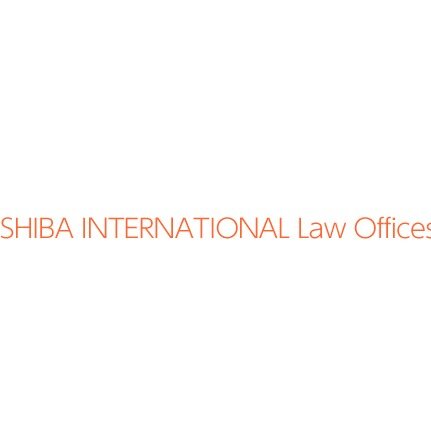Best Creditor Lawyers in Tokyo
Share your needs with us, get contacted by law firms.
Free. Takes 2 min.
List of the best lawyers in Tokyo, Japan
About Creditor Law in Tokyo, Japan
Creditor law in Tokyo, Japan, pertains to the legal framework governing the rights and obligations of parties involved in the lending and borrowing of money. This area of law includes debt collection, enforcement of payment obligations, and interactions between creditors, debtors, and any related parties. Given Tokyo's significance as a financial hub, creditor law is an essential component of both individual and business financial transactions in the region. The laws are designed to balance the rights of creditors to collect debts with protections for debtors against unfair practices.
Why You May Need a Lawyer
There are several situations where individuals or businesses may require legal help in creditor matters in Tokyo. Common scenarios include:
- Difficulty in collecting outstanding debts from clients or customers.
- Disputes with creditors regarding the terms of repayment or the amounts owed.
- Navigating bankruptcy proceedings and understanding the implications for creditors.
- Negotiating payment plans or settlements with debtors.
- Understanding complex credit agreements and ensuring they comply with Japanese law.
- Protection against aggressive or unlawful debt collection practices.
Local Laws Overview
The legal landscape for creditors in Tokyo, Japan, is influenced by both national legislation and local regulations. Key aspects include:
- The Civil Code: Provides the foundation for contracts and obligations, including debt agreements between private parties.
- The Bankruptcy Law: Outlines the procedures for insolvency, affecting how creditors can claim debts from bankrupt entities.
- The Act on Special Measures Concerning Credit Associations: Governs the operation of credit associations and their activities.
- The Consumer Contract Act: Protects consumers in credit agreements, providing specific rights and obligations that can impact creditors.
- Regulations on Moneylending: Establishes rules for moneylenders, including interest rate caps and lending practices, which are critical for creditors involved in lending.
Frequently Asked Questions
What rights do creditors have in Tokyo, Japan?
Creditors have the right to request repayment according to the terms of the contract. They can also take legal action to enforce payment if necessary, respecting any relevant legal processes and debtor protections.
How can a creditor enforce a debt if the debtor is unwilling to pay?
Creditors may enforce debts through legal proceedings, which could involve filing a lawsuit. In some cases, they may obtain a court order to seize assets or garnish wages.
Are there limits on interest rates that creditors can charge?
Yes, Japan has established caps on interest rates to prevent extortionate lending practices. Lenders must comply with these regulations to avoid legal penalties.
What happens if a debtor files for bankruptcy?
In bankruptcy cases, creditors may need to file claims with the bankruptcy trustee and participate in the distribution of the debtor's assets according to the law.
Can a debtor challenge a creditor's claim?
Yes, debtors can dispute a claim if there are valid grounds, such as errors in the debt amount or issues with the original contract.
Is there a time limit for collecting a debt?
There are statutes of limitations for debt collection, which means that creditors have a limited period to pursue a claim legally.
What consumer protections exist regarding credit agreements?
The Consumer Contract Act provides various protections, such as the right to cancel in certain cases and the prohibition of unfair terms imposed by creditors.
Can creditors use collection agencies?
Yes, creditors can use collection agencies; however, these agencies must comply with Japanese laws and regulations regarding debt collection practices.
What should I do if contacted by a creditor or collection agency?
It's important to verify the debt's legitimacy, understand your rights, and, if needed, consult with a legal professional to determine your best course of action.
How can a lawyer assist in creditor issues?
A lawyer can provide guidance on collecting debts, negotiating settlements, ensuring compliance with regulatory requirements, and representing clients in court proceedings if necessary.
Additional Resources
For further assistance, consider the following resources:
- The Ministry of Justice of Japan provides legal information related to creditors.
- The Tokyo District Court offers insights into legal procedures for creditors.
- Local bar associations can help you find and consult with qualified lawyers specializing in creditor law.
- Legal aid services may also be available for those seeking guidance.
Next Steps
If you are facing creditor-related issues and need legal assistance, consider taking these steps:
- Assess Your Situation: Gather all relevant documentation and details about your debt issue.
- Consult a Lawyer: Seek legal advice from a professional who specializes in creditor law to understand your rights and options.
- Explore Mediation: In some cases, mediation may help resolve disputes without going to court.
- Prepare for Legal Action: If necessary, be prepared to take or defend against legal action to resolve the debt issue.
Taking informed and deliberate steps with the help of a qualified professional can significantly enhance your chances of a favorable outcome in creditor matters.
Lawzana helps you find the best lawyers and law firms in Tokyo through a curated and pre-screened list of qualified legal professionals. Our platform offers rankings and detailed profiles of attorneys and law firms, allowing you to compare based on practice areas, including Creditor, experience, and client feedback.
Each profile includes a description of the firm's areas of practice, client reviews, team members and partners, year of establishment, spoken languages, office locations, contact information, social media presence, and any published articles or resources. Most firms on our platform speak English and are experienced in both local and international legal matters.
Get a quote from top-rated law firms in Tokyo, Japan — quickly, securely, and without unnecessary hassle.
Disclaimer:
The information provided on this page is for general informational purposes only and does not constitute legal advice. While we strive to ensure the accuracy and relevance of the content, legal information may change over time, and interpretations of the law can vary. You should always consult with a qualified legal professional for advice specific to your situation.
We disclaim all liability for actions taken or not taken based on the content of this page. If you believe any information is incorrect or outdated, please contact us, and we will review and update it where appropriate.















